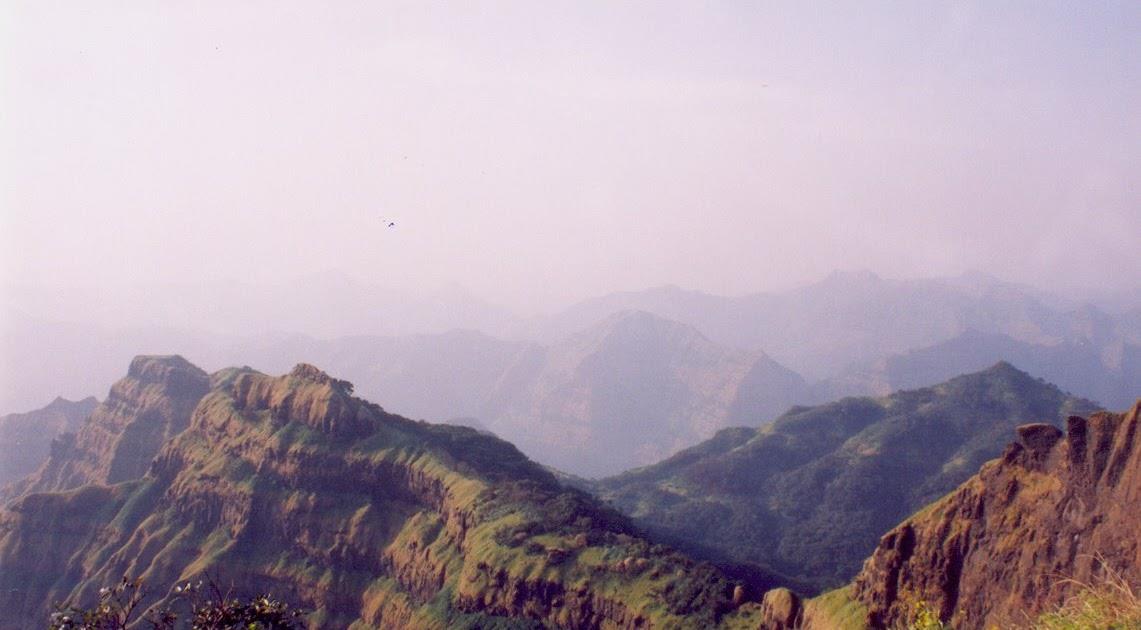
Rampant Denudation Of Western Ghats May Turn K’Taka Into A Desert
Climate change that followed the rampant destruction of land, river, forests and hills in the Western Ghats, has led to disastrous implications in Karnataka. The desertification of land has already started in the state, say experts.
The Western Ghats act as a crucial source of water for the major rivers in peninsular India, including the Godavari, Krishna, Cauvery, and numerous smaller rivers.
The Western Ghats are recognised as one of the world's biodiversity hotspots, home to a rich variety of flora and fauna. Many species found in the Western Ghats are endemic, meaning they are not found anywhere else in the world. The range plays a significant role in regulating the climate of the region and influencing the monsoon patterns.
Experts opine that the pro-industrialist policies of the Centre and the government of Karnataka are pushing the entire Indian Peninsula to the brink of ecological disaster.
Dinesh Holla, artist and environmentalist from the region explained to IANS that, all rivers in the state take birth in the Western Ghats. "Climate change has affected the rain pattern as I have observed in 15 years," he said.
The Western Ghats in Karnataka receive rains for six months continuously. They store, recharge water in all the rivers and this gets distributed. Due to this, the Shola forests and wildlife there are thriving. At present, due to a rain deficit, the water storage area is reducing in the catchment area, he explained.
Dinesh Holla explained that as a result of this, the region has been witnessing landslides and floods for five years. This year the Western Ghats received least rainfall and if one river system weakens, the big cities will be directly impacted.
“Cauvery River supplies water to Bengaluru and other cities in south Karnataka, Netravati River supplies water to Mangaluru city, Kali River supplies water to Karwar city. It's all going to be affected,” he explained.
“The water demand is rising but the systems where rivers take birth are weakening every year. The balance is lost. In the last 15 years, every river origin has weakened. The landslides are causing damage to the grasslands and to the Shola forest. The grasslands store rainwater and through the inner water layer they supply water to the Shola forest. The rivers are already empty in Western Ghats due to drought. This is going to be a permanent phenomenon. It's not like it's going to be alright if excess rains are received in future,” Dinesh Holla warned.
“There is no point in blaming the Centre and the state governments, the people will have to take initiatives. The Western Ghats have turned out to be entertaining spots, which leads to further degradation,” he lamented.
Dr AN Yallappa Reddy, former Environment Secretary, Government of Karnataka and activist explained to IANS that next to Rajasthan, Karnataka has the geographically largest area. The Western Ghats and Malnad (hilly) region are 20 per cent and 80 per cent of the region is arid and semi-arid.
Because of reckless destruction of vegetation, the lack of environment assessment and establishment of 'red category' industries there has been a rise in temperature.
Karnataka is going to face a very huge crisis of floods, cyclones and cloud bursts. The climate change event is playing havoc in the total ecosystem and in isolation, Reddy explained.
“Western Ghats are a vital lifeline of Peninsular India, not only Karnataka. Now, the mining activity in Western Ghats, construction, deforestation, regularisation of encroachments is going on without restrictions,” he observed.
Added to that, the Centre has now relaxed the Environment Assessment rules and allowed MNCs to start industries.“If at all the community is affected and a complaint is raised, they will slap a fine and allow them to continue work. The situation today is that anyone can come and start any kind of industry,” he pointed out.
The polluting industries banned in European countries and America, are allowed to set up businesses here. The laws related to the environment are relaxed and desertification is taking place already.
“The land is going to become a desert. The trees which are 500 or 1,000-years-old are cut. There is no monitoring. Only satellite images are used. The agencies will not allow the release of genuine satellite imagery,” Reddy explained.
According to him, meteorological study reveals the dramatic changes in the rainfall pattern and Monsoon patterns due to which agricultural activities are also affected. Borewell irrigation has already exploited the underground water and reached the fossil water which is 1,000 to 1,500 feet deep.“The water we are using for drinking and farming is nearly 1,000-year-old water, which is called fossil water and that is also nearly exhausted,” he stated.
Thousands of acres of land in Karnataka have already become useless and data is available for every district but none of these things are considered during policy-making.
“The politicians are busy grabbing power, no one is bothered about what is happening to the land, water and air,” Reddy lamented.
--IANS
mka/rad

Legal Disclaimer:
MENAFN provides the
information “as is” without warranty of any kind. We do not accept
any responsibility or liability for the accuracy, content, images,
videos, licenses, completeness, legality, or reliability of the information
contained in this article. If you have any complaints or copyright
issues related to this article, kindly contact the provider above.


















Comments
No comment